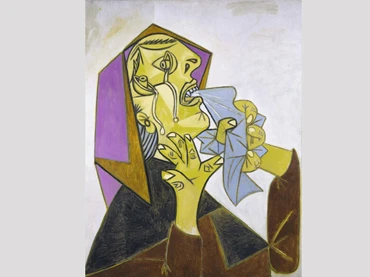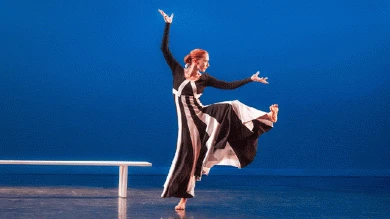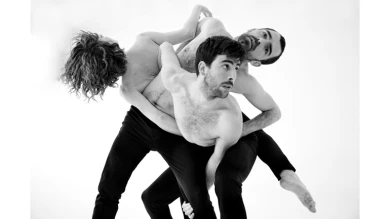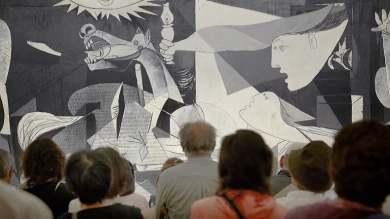-
Saturday, 25 March
Monster Institutions
17:30 hrs. Gerald Raunig. Technecologies. Milieus, Midstreams, Monsters
18:30 hrs. Florencio Cabello. Notions of Public in Collective Intelligence
19:30 hrs. Roberta Da Soller (S.a.L.E., Venice), Kelly Mulvaney (Transform-eiPCP, Berlin and Vienna) and Manuela Zechner (Barcelona). Moderated by: Raúl Sánchez Cedillo. European Cities, from Care and Shelter to Fear, War, and Debt
21:00 hrs. Debate with the session participantsParticipants:
Florencio Cabello has a PhD in Communication Studies and is a lecturer at the University of Málaga. His teaching and research focuses on ways of forming cooperatives inspired by the free software and culture movements, under the perspective of constructing a commons in communicative and cultural domains. He is coordinator of the Medialab-Prado project Traducciones del Laboratorio del Procomún (Translations of the Commons Laboratory).
Roberta Da Soller is an activist and member of the collective which operates S.a.L.E. Docks, an independent space of contemporary art and cultural practices in Venice which has been running since 2008. S.a.L.E. Docks programmes seminars, exhibitions, research projects, workshops and public actions that seek to create an environment in which art and culture are removed from the market value logic.
Kelly Mulvaney is an anthropologist, translator and activist. She is a member of eiPCP and the editorial board for transversal texts. Furthermore, she is a professor at the Faculty for Cultural Studies at the Leuphana University of Lüneburg, and actively participates in the networks of transnational anti-austerity movements in Europe.
Gerald Raunig is a philosopher and art theorist. He is a lecturer at Zürcher Hochschule der Künste (Zurich), and is co-editor of eiPCP and its online publication transversal text. His most recent publications include Producción cultural y prácticas instituyentes. Líneas de ruptura en la crítica institucional (2008), Mil máquinas. Breve filosofía de las máquinas como movimiento social (2008), Fabbriche del sapere, industrie della creatività (2012), and DIVIDUUM. Machinic Capitalism and Molecular Revolution (2016).
Raúl Sánchez Cedillo is a philosopher, activist and translator. He has collaborated with the Universidad Nómada and is currently a member of Fundación de los Comunes. He has also edited and translated theorists such as Paolo Virno, Antonio Negri, Felix Guattari, Luce Irigaray, Yan Moulier-Boutang and Luc Boltanski and Eve Chiapello into Spanish, and some of his writings appear in the book Producción cultural y prácticas instituyentes. Líneas de ruptura en la crítica institucional (2008) and in the prefaces to different essays by Antonio Negri and Paolo Virno.
Manuela Zechner is a researcher and independent cultural worker. Her work revolves around migration, micropolitics, care and pedagogy, with an emphasis on social movements. She is the coordinator of Future Archive (Intermediae-Matadero, Madrid), the Project for Radical Collective Care Practices, alongside Julia Wieger and Bue Rübner Hansern, and the free radio programme Sounds of Movement (Radio Orange, Radio Helsinki and live streaming). She has also worked as a lecturer at the Queen Mary University of London. -
Sunday, 26 March
The Artist in the City-Brand
17:30 hrs. Rogelio López Cuenca. In the Genius City
This presentation will lead on to a workshop with the artist and Elo Vega.
18:30 hrs. Isabell Lorey. Precarization, Indebtedness, Giving Time
19:30 hrs. Debate with the session participantsParticipants:
Rogelio López Cuenca. Artist. A member of the former direct action collective Agustín Parejo School between 1982 and 1984, his work stands at the crossroads between visual poetry, archival research and public intervention, exploring the relationships between art, memory and ideology. Málaga/Guernica 951 (2017), Ciudad Picasso (2011), Malagana (2000) and Sobrevivir a Picasso (2012) are some of his projects under construction and centre on contemporary interpretations of Pablo Picasso. He has exhibited at the Museo Reina Sofía, IVAM, MACBA, MUSAC, CGAC and Artium, among other institutions.
Isabell Lorey is a professor of International Gender Politics in the Institute for Political Science at the University of Kassel. She has taught feminist and post-colonial theory at the University of Humboldt, Berlin, and at the Universities of Vienna and Basel, and is also a member of eiPCP and co-editor of its online publication transversal text. She conducts research into the precariousness of work and life in neoliberal society, social movements, democracy and representation. Her most recent publication is Estado de Inseguridad. Gobernar la Precariedad (2016).
Elo Vega is an artist and researcher. Her work addresses social, political and gender issues through art projects which are at once cultural critique devices and a political instrument. In recent years she has worked with the artist Rogelio López Cuenca in workshops and collective projects related to history, memory and monumentalization as an element of ideological control, for instance Gitanos de papel (Cultural Centre of Spain in Montevideo), Historia de dos ciudades/Saharawhy (Museo de Arte Contemporáneo, Santiago de Chile), Efigies y fantasmas (Museo de Huelva) and Granada. Guía monumental (Centro José Guerrero).
Picasso in the Monster Institution
Art, the Culture Industry and the Right to the City
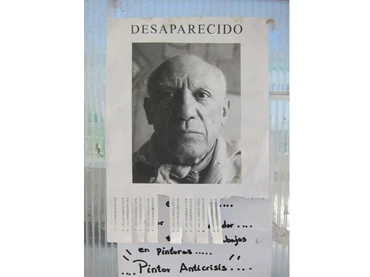
Held on 25 Mar 2017
Picasso in the Monster Institution. Art, the Culture Industry and the Right to the City strives to create distance from the predominant sense of celebrations and large-scale cultural commemorations which, in understanding art as an attractive resource, place history and artistic experience inside a frame with exclusive ties to tourism and urban leisure. It also calls into question these logics and explores possible alternatives.
This seminar unfolds inside the context of Midstream, a European network of university and institutional research into new audiences and devices of cultural mediation, comprising eiPCP (the European Institute for Progressive Cultural Policies), Museo Reina Sofía, and the Latvian Center for Contemporary Art, and seeks to reflect on and debate the role of culture and art in those social movements that vindicate uses of urban space outside a city model which looks towards art to strengthen tourist imaginaries, thus conditioning its institutions and reception.
The recognition of Picasso’s work is one of the best examples to analyse the contradictions and complexities of these logics. Today, the work of the artist from Málaga is broadly appreciated and disseminated, yet, equally, such a reception cements stereotypes associated with the heroic and fetichized idea of artistic avant-garde movements and their most unrelenting myths, for instance the originality, brilliance and autonomy of art. These values obscure one of the 20th century’s most complex bodies of work.
How can the contemporary city fight against this integration of art, and its audiences and institutions, in the service economy and recover the potential of one of the most challenging oeuvres from the avant-gardes in its historical scope? What are the devices and anomalous or “monstrous” institutions which are able to place the work in a space which is alien to this integration? The seminar sets out to reflect on these questions via two round-table discussions and a workshop on the monumental imagary of Picasso and the contemporary city, conducted by Rogelio López Cuenca and Elo Vega, which will begin at the close of the lectures and shall be expanded upon in the future. The first session will debate monstrous institutionalism’s modes of relationship, calling upon different European networks and spaces (S.a.L.E., Venice; Transform-eiPCP, Berlin and Vienna; and La Invisible, Málaga), and theorists specialised in testing mediation experiments with these instituent machines. The second analyses the relationship between art and gentrification through the uses and abuses of Picasso’s work, putting forward a model of artistic experience which eludes the so-called creative industries and economies.
Framework
Midstream. New Ways of Audience Development in Contemporary Art, inside the Creative Europe programme
Organised by
eipcp (European Institute for Progressive Cultural Policies), Museo Reina Sofía and La Invisible


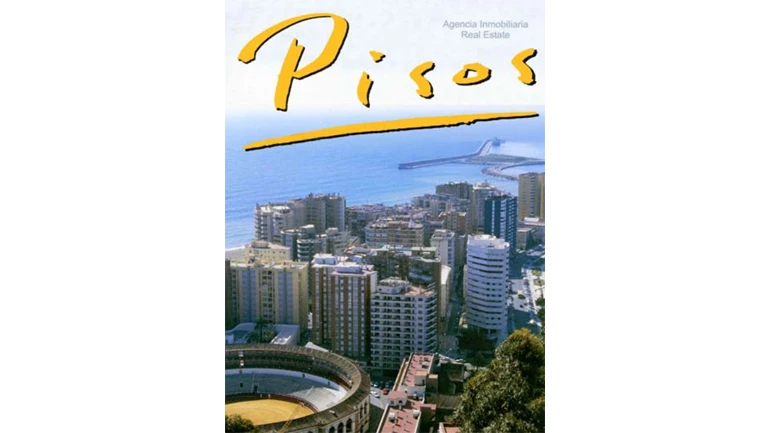
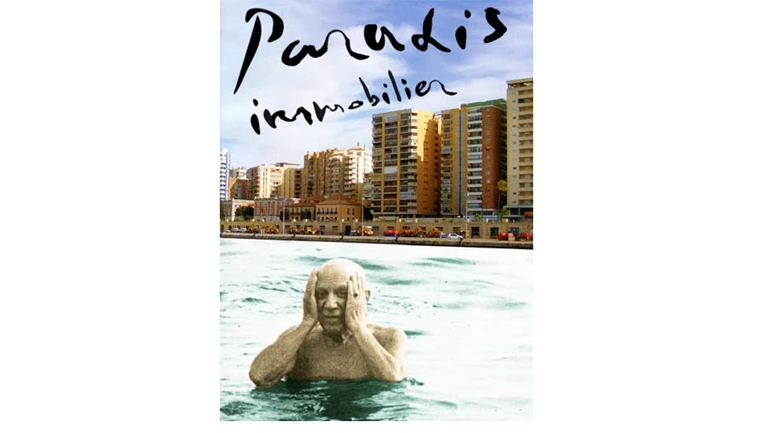
Más actividades

Difficulty. Forms and Political Effects of Deviation in Writing and Contemporary Art
23 February – 14 December 2026 – Check programme
Difficulty. Forms and Political Effects of Deviation in Writing and Contemporary Art is a study group aligned towards thinking about how certain contemporary artistic and cultural practices resist the referentiality that dominates the logics of production and the consumption of present-day art. At the centre of this proposal are the concepts of difficulty and deviation, under which it brings together any procedure capable of preventing artistic forms from being absorbed by a meaning that appears previous to and independent from its expression. By ensuring the perceptibility of their languages, difficulty invites us to think of meaning as the effect of a signifying tension; that is, as a productive and creative activity which, from the materiality of art objects, frees aesthetic experience from the representational mandate and those who participate in it from the passiveness associated with tasks of mimesis and decoding.
The economy of the referential norm translates the social logic of capitalism, where insidious forms of capturing subjectivity and meaning operate. In the early 1980s, and adopting a Marxist framework, poet Ron Silliman highlighted how this logic entailed separating language from any mark, gesture, script, form or syntax that might link it to the conditions of its production, rendering it fetichised (as if without a subject) and alienating its users in a use for which they are not responsible. This double dispossession encodes the political strategy of referential objectivity: with no subject and no trace of its own consistency, language is merely an object, that reality in which it disappears.
The political uses of referentiality, more sophisticated today than ever before, sustain the neoliberal-extractivist phase of capitalism that crosses through present-day societies politically, economically and aesthetically. Against them, fugitive artistic practices emerge which, drawing from Black and Queer studies and other subaltern critical positions, reject the objective limits of what exists, invent forms to name what lies outside what has already been named, and return to subjects the capacity to participate in processes of emission and interpretation.
Read from the standpoint of artistic work, the objective capture of referentiality may be called transparency. Viewed from a social contract that reproduces inequality in fixed identity positions, transparent in this objectivity are, precisely, the discourses that maintain the status quo of domination. Opposite the inferno of these discourses, this group aims to collectively explore, through deviant or fugitive works, the paradise of language that Monique Wittig encountered in the estranged practices of literature. For the political potency of difficulty — that is, its contribution to the utopia of a free language among equals — depends on making visible, first, its own deviations; from there, the norm that those deviations transgress; and finally, the narrowness of a norm which in no way exhausts the possibilities ofsaying, signifying, referring and producing a world.
From this denouncement of referential alienation, fetishisation and capture, Difficulty. Forms and Political Effects of Deviation in Writing and Contemporary Art turns its attention to the strategies of resistance deployed by contemporary artists and poets. Its interest is directed towards proposals as evidently difficult or evasive as those of Gertrude Stein, Lyn Hejinian, Theresa Hak Kyung Cha, Kameelah Janan Rasheed, Kathy Acker, María Salgado and Ricardo Carreira, and as seemingly simple as those of Fernanda Laguna, Felix Gonzalez Torres and Cecilia Vicuña, among other examples that can be added according to the desires and dynamics of the group.
The ten study group sessions, held between February and December, combine theoretical seminars, work with artworks from the Museo Reina Sofía’s Collections and exhibitions, reading workshops and public programs. All these formats serve as spaces of encounter to think commonly about certain problems of poetics — that is, certain political questions — of contemporary writing and art.
Difficulty. Forms and Political Effects of Deviation in Writing and Contemporary Art inaugurates the research line Goodbye, Representation, through which the Museo Reina Sofía’s Studies Directorship seeks to explore the emergence of contemporary artistic and cultural practices which move away from representation as a dominant aesthetic-political strategy and redirect their attention toward artistic languages that question the tendency to point, name and fix, advocating instead for fugitive aesthetics. Over its three-year duration, this research line materializes in study groups, seminars, screenings and other forms of public programming.

Institutional Decentralisation
Thursday, 21 May 2026 – 5:30pm
This series is organised by equipoMotor, a group of teenagers, young people and older people who have participated in the Museo Reina Sofía’s previous community education projects, and is structured around four themed blocks that pivot on the monstrous.
This fourth and final session centres on films that take the museum away from its axis and make it gaze from the edges. Pieces that work with that which is normally left out: peripheral territories, unpolished aesthetics, clumsy gestures full of intent. Instead of possessing an institutional lustre, here they are rough, precarious and strange in appearance, legitimate forms of making and showing culture. The idea is to think about what happens when central authority is displaced, when the ugly and the uncomfortable are not hidden, when they are recognised as part of the commons. Film that does not seek to be to one’s liking, but to open space and allow other ways of seeing and inhabiting the museum to enter stage.

Intergenerationality
Thursday, 9 April 2026 – 5:30pm
This series is organised by equipoMotor, a group of teenagers, young people and older people who have participated in the Museo Reina Sofía’s previous community education projects, and is structured around four themed blocks that pivot on the monstrous.
The third session gazes at film as a place from which to dismantle the idea of one sole history and one sole time. From a decolonial and queer perspective, it explores films which break the straight line of past-present-future, which mix memories, slow progress and leave space for rhythms which customarily make no room for official accounts. Here the images open cracks through which bodies, voices and affects appear, disrupting archive and questioning who narrates, and from where and for whom. The proposal is at once simple and ambitious: use film to imagine other modes of remembering, belonging and projecting futures we have not yet been able to live.

Remedios Zafra
Thursday March 19, 2026 - 19:00 h
The José Luis Brea Chair, dedicated to reflecting on the image and the epistemology of visuality in contemporary culture, opens its program with an inaugural lecture by essayist and thinker Remedios Zafra.
“That the contemporary antifeminist upsurge is constructed as an anti-intellectual drive is no coincidence; the two feed into one another. To advance a reactionary discourse that defends inequality, it is necessary to challenge gender studies and gender-equality policies, but also to devalue the very foundations of knowledge in which these have been most intensely developed over recent decades—while also undermining their institutional support: universities, art and research centers, and academic culture.
Feminism has been deeply linked to the affirmation of the most committed humanist thought. Periods of enlightenment and moments of transition toward more just social forms—sustained by education—have been when feminist demands have emerged most strongly. Awareness and achievements in equality increase when education plays a leading social role; thus, devaluing intellectual work also contributes to harming feminism, and vice versa, insofar as the bond between knowledge and feminism is not only conceptual and historical, but also intimate and political.
Today, antifeminism is used globally as the symbolic adhesive of far-right movements, in parallel with the devaluation of forms of knowledge emerging from the university and from science—mistreated by hoaxes and disinformation on social networks and through the spectacularization of life mediated by screens. These are consequences bound up with the primacy of a scopic value that for some time has been denigrating thought and positioning what is most seen as what is most valuable within the normalized mediation of technology. This inertia coexists with techno-libertarian proclamations that reactivate a patriarchy that uses the resentment of many men as a seductive and cohesive force to preserve and inflame privileges in the new world as techno-scenario.
This lecture will address this epochal context, delving into the synchronicity of these upsurges through an additional parallel between forms of patriarchal domination and techno-labor domination. A parallel in which feminism and intellectual work are both being harmed, while also sending signals that in both lie emancipatory responses to today’s reactionary turns and the neutralization of critique. This consonance would also speak to how the perverse patriarchal basis that turns women into sustainers of their own subordination finds its equivalent in the encouraged self-exploitation of cultural workers; in the legitimation of affective capital and symbolic capital as sufficient forms of payment; in the blurring of boundaries between life and work and in domestic isolation; or in the pressure to please and comply as an extended patriarchal form—today linked to the feigned enthusiasm of precarious workers, but also to technological adulation. In response to possible resistance and intellectual action, patriarchy has associated feminists with a future foretold as unhappy for them, equating “thought and consciousness” with unhappiness—where these have in fact been (and continue to be) levers of autonomy and emancipation.”
— Remedios Zafra

27th Contemporary Art Conservation Conference
Wednesday, 4, and Thursday, 5 March 2026
The 27th Contemporary Art Conservation Conference, organised by the Museo Reina Sofía’s Department of Conservation and Restoration, with the sponsorship of the Mapfre Foundation, is held on 4 and 5 March 2026. This international encounter sets out to share and debate experience and research, open new channels of study and reflect on conservation and the professional practice of restorers.
This edition will be held with in-person and online attendance formats, occurring simultaneously, via twenty-minute interventions followed by a five-minute Q&A.

